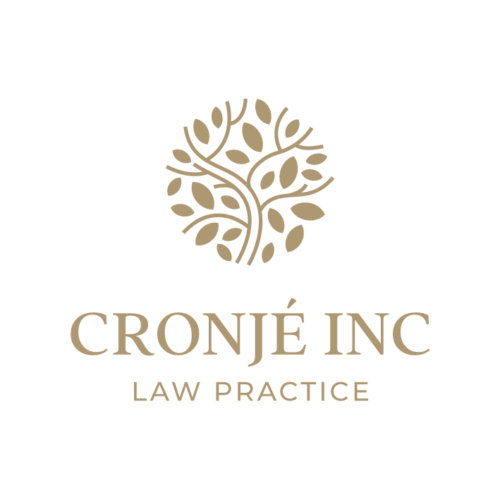Written by Marinda Jacobs, reviewed and confirmed by Helene Cronjé
Most engaged couples cannot wait to tie the knot and they invest considerable time and resources in planning their wedding. Unfortunately, most of these couples do not take the same meticulous approach when it comes to planning their marriage or the eventualities that follow once that marriage ends. Their failure to do so can visit unwanted consequences on them upon dissolution of the marriage, whether by order of divorce or the death of a spouse.
It is, accordingly, important that soon-to-be spouses take note of the different types of marital property regimes that may govern their marriage and (joint) estate(s). Spouses can be married in community or out of community of property. As regards the latter, spouses can further elect to be married out of community of property with or without the application of the accrual system.
In the absence of an Antenuptial Contract, the parties are married in community of property which means that their estates are joined, and they share assets and liabilities. In other words, a marriage in community of property is the default position – should couples simply enter a lawful marriage without making any additional arrangements (i.e., entering an Antenuptial Contract) they will automatically be married in community of property.
Where spouses are married in community of property, all debts incurred by one spouse are debts of the joint estate which means that you may find yourself liable for your spouse’s debts. Under this regime, your spouse’s written consent is required when purchasing immovable property, cars, or making certain financial investments. Likewise, you may not enter into a credit contract or bind yourself as surety without your spouse’s written consent.
It is a small wonder that not all couples relish the idea of being married in community of property. As alluded to above, it is possible to opt for a different marital regime, namely a marriage out of community of property and may be entered into by signing an Antenuptial Contact. An Antenuptial Contract must be signed before the marriage and registered at the deeds office within three months after signature.
An Antenuptial Contract will have to state explicitly whether the accrual system is excluded.
If you are married in community of property:
In terms of this marital regime, both parties are the owners of the joint estate.
From the inception of the marriage, all assets and liabilities are incorporated into a single, joint estate, with certain assets being excluded. Exclusions include awards of patrimonial damages (an amount of money awarded by a Court to a spouse in a court case for loss suffered).
Assets accumulated by one or both parties prior to the marriage also become part of the joint estate owned by both parties. In this case, assets that are excluded are, for example, those inherited by one of the parties on the distinct understanding that they will not form part of the joint estate.
Consequently, all property in the joint estate will belong to the husband and wife as an equal, indivisible portion – and both of them will share in the profits or losses of the joint estate.
Advantages of a marriage in community of property are:
- It is automatic without having to enter into a special contract.
- If you are the financially weaker spouse, you get to share in the assets of your spouse.
Disadvantages of a marriage in community of property are:
- The economically stronger spouse has to share his/her assets with his/her spouse;
- The spouses are jointly liable for each other’s debts. This is particularly problematic on insolvency as both spouses will be treated as insolvent;
- The joint administration of the estate is quite complicated;
- While the marriage is a happy one, it is no real problem to obtain your spouse’s consent. But when the marriage starts to fail, the requirement of joint consent is difficult to satisfy.
If you are married out of community of property, without accrual:
This type of marital regime becomes effective when the parties enter into an Antenuptial Contract (“the ANC”).
This is a contract entered into by both parties and sets out the rules and conditions in respect of the division of assets, and which will apply during the marriage.
Spouses can include any provisions they want in their Antenuptial Contract as long as the provisions are not against the law or immoral.
The most common reason why people elect to marry out of community of property, is to protect their assets and their financial position before and during the marriage.
In the case of marriages out of community of property without accrual, the property owned by a person prior to the marriage, as well as all property accumulated during the marriage, belongs only to that person.
The same rule applies to liabilities. Each party’s debt remains his/her responsibility. Consequently, each party may deal arbitrarily with his/her estate in a will.
Advantages of a marriage out of community of property without the accrual system:
- Each spouse keeps his/her own assets and is free to deal with his/her own estate as he/she likes;
- Spouses are generally not liable for each other’s debts, but notice needs to be taken of the Insolvency Act;
- The financially stronger spouse does not have to share his/her estate with the weaker spouse.
Disadvantages of a marriage out of community of property without the accrual system:
- The financially weaker spouse does not get to share in the estate of the stronger spouse, even though he/she may have contributed to the estate indirectly by putting their career on hold.
If you are married out of community of property with accrual:
This is similar to a marriage out of community of property without accrual, except that upon dissolution of the marriage, the net increases in the respective estates of the parties will be divided equally between the two parties when the marriage is terminated (death or divorce), based on the accrual or profit.
The spouse whose estate shows no accrual or a smaller accrual than the estate of the other spouse, acquires a claim against the spouse or his/her estate for an amount equal to half of the difference between the accrual of the respective estates of the spouses.
The accrual is determined by calculating the difference in the net starting value and the net final value of the estate of each spouse with the exclusion of inheritances, legacies, and donations or any exclusion in terms of the ANC.
The calculation of the accrual can briefly and generally be summarized as follows: It is important to determine the value of the estate at the time when the marriage is contracted.
The total net assets value of spouse A at the commencement of the marriage is N$200 000,00;
The total net assets value of spouse B at the commencement of the marriage is N$50 000,00;
The total net assets value of spouse A at the dissolution of the marriage is N$600 000,00;
The total net assets value of spouse B at the dissolution of the marriage is N$100 000,00.
The accrual of spouse A is calculated to be the difference between the value at the dissolution of the marriage and the value at the commencement of the marriage, i.e. N$400 000,00.
The accrual of spouse B is calculated in the same manner, i.e. N$50 000,00.
The Act then states that the one spouse acquires a claim against the other spouse for an amount equal to half of the difference between the accrual of the respective estates, namely N$400 000,00 – N$50 000,00 = N$350 000,00 divided by 2. Spouse B will therefore have a claim against the estate of spouse A in the amount of N$175 000,00.
Certain assets are excluded from the accrual in terms of the Matrimonial Property Act. These include:
- An inheritance received during the duration of the marriage;
- Donations made between the parties, during the duration of the marriage;
- Assets explicitly excluded in terms of the conditions of the marriage contract.
Although each spouse may bequeath his/her separate estate at his/her discretion, it should be born in mind that in terms of the accrual system the other spouse may have a claim that will have to be finalized before the testamentary distribution can take place.
The testator/testatrix could be prevented from bequeathing his/her estate as he/she wishes, if, after settlement of all claims, there are not sufficient assets or funds in his/her estate to carry out his/her wishes.
Although no one wants to envisage a divorce, it is advisable to plan your life in such a way that you are not ruined financially if your marriage breaks down.
DISCLAIMER
Kindly note that this article is not intended to be legal advice. This article is distributed for information purposes only and Cronjé Inc or its employees will not be liable for any direct or indirect loss that may be suffered as a result of reliance on the content of this article. This article is confined to matters of Namibian law, as at the date hereof.
In the event that the content hereof is relevant to any reader, we advise that the reader is to approach any of the following staff at Cronjé Inc:
Helene Cronjé (Legal Practitioner, Conveyancer, and Notary Public): helene@cronjelaw.com
Elda le Roux (Legal Practitioner): elda@cronjelaw.com
Marinda Jacobs (Conveyancing Typist and Personal Assistant to Helene Cronjé): convey@cronjelaw.com
Anna-Mart Adriaanse (Candidate Legal Practitioner): annamart@cronjelaw.com





